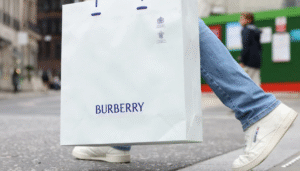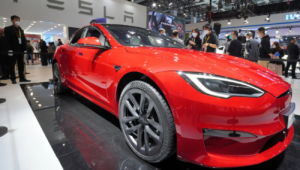A key inflation measure closely monitored by the Federal Reserve remained elevated last month, even before most tariffs have had a significant effect. Consumer spending rose after a sharp decline in the previous month, but it remained sluggish, indicating that shoppers have become more cautious this year.
The Commerce Department’s report on Friday showed that consumer prices increased by 2.5% in February compared to the same month last year, matching the annual rate seen in January. When excluding the volatile food and energy sectors, core prices rose by 2.8% from a year earlier, slightly higher than the 2.7% increase recorded in January.
Economists focus on core prices because they are seen as a more reliable indicator of future inflation trends. Over the past year, the core index has shown little change. Inflation is still above the Federal Reserve’s 2% target, making it challenging for the central bank to reduce interest rates in the near future.
The report also revealed that consumer spending bounced back last month after a sharp decline in January, which saw the biggest drop in four years. However, much of the increase in spending was due to higher prices, with inflation-adjusted spending showing only a slight rise. This weak figure points to a slowdown in growth during the first quarter of the year as both consumers and businesses become more cautious amid significant changes in government policies.
Inflation continues to be a major concern for many Americans, despite a significant decline from its peak in 2022. Donald Trump’s campaign capitalized on dissatisfaction with rising prices, and he promised to reduce inflation quickly. However, the annual rate is still higher now than it was in September when it briefly dropped to 2.1%.
“Inflation is still too high, and spending is too weak,” said Stephen Brown, an economist at Capital Economics, in an email. “The Fed is unlikely to lower interest rates this year.”
Consumer spending increased by 0.4% in February, but after adjusting for inflation, the gain was only 0.1%. This modest rise follows a larger 0.6% decline in January.
The increase in spending was mainly driven by higher purchases of durable goods, such as cars and appliances, which may reflect shoppers’ efforts to buy items before tariffs are imposed.
However, spending on services, including discretionary expenses like dining out and hotel stays, declined.
“Consumers choosing to spend more on goods that are about to see price hikes, instead of the more economically significant service sector, reveals the consumer mindset,” said Joseph Brusuelas, chief economist at RSM, a tax and advisory firm.
President Trump has imposed a 20% tariff on all Chinese imports, a 25% tax on steel and aluminum, and recently announced a 25% duty on imported cars. Most economists, along with the Federal Reserve, now expect inflation to rise this year due to the tariffs. Last week, Fed Chair Jerome Powell noted that the inflation boost from the tariffs could be temporary but acknowledged the outlook is unusually uncertain because of the rapid policy changes from the White House.
On a monthly basis, prices increased by 0.3% in February compared to January, the same as the previous month, while core prices rose by 0.4%, marking the largest increase in over a year.
A positive takeaway from the report was a significant increase in incomes for the second month in a row, rising by 0.8% in February compared to January. With weaker spending, the savings rate also climbed, which could help drive future spending. However, it may also signal that consumers are becoming more cautious.
“Savings have increased, which aligns with reports of declining consumer confidence, growing uncertainty, and lower expectations for the future,” said Carl Weinberg, chief economist at High Frequency Economics.
Consumer and business confidence has dropped significantly since President Trump began implementing tariffs. A gauge of Americans’ outlook on the economy recently fell to a 12-year low. Many polls indicate that the majority of the public views the economy as fair or poor. A Pew Research Center survey from last month found that 63% of Americans still consider inflation a “very big problem.”
On Thursday, apparel company Lululemon became the latest retailer to warn that falling consumer confidence would impact sales, causing its stock to drop sharply. Nike had previously issued a similar warning, and expectations for major retailers like Target and Walmart have also become more cautious.














